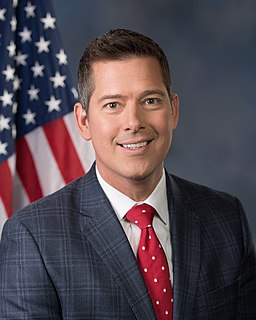A Quote by Maya Moore
For centuries in this country, black people were seen as three-fifths of a person. So when you hear the national anthem or you see an American flag as an African American person who has experienced the effects of that dehumanizing existence, it's not going to mean the same.
Related Quotes
That happens to a lot of couples. I understand the black history in this country, and regret it, I wish it hadn't happened. See, I also know that it hasn't happened to African-Americans alive today. There isn't one African-American alive today who's treated as three-fifths of a person like it was in the past.
No, I’m not an American. I’m one of the 22 million black people who are the victims of Americanism. One of the … victims of democracy, nothing but disguised hypocrisy. So, I’m not standing here speaking to you as an American, or a patriot, or a flag-saluter, or a flag-waver - no, not I. I’m speaking as a victim of this American system. And I see America through the eyes of the victim. I don’t see any American dream; I see an American nightmare.
If one asks me the meaning of our flag, I say to him: It means all that the Constitution of our people, organizing for justice, for liberty, and for happiness, meant. Our flag carries American ideas, American history and American feelings. This American flag was the safeguard of liberty. It was an ordinance of liberty by the people, for the people. That it meant, that it means, and, by the blessing of God, that it shall mean to the end of time!
One of the things that made the Black Muslim movement grow was its emphasis upon things African. This was the secret to the growth of the Black Muslim movement. African blood, African origin, African culture, African ties. And you'd be surprised - we discovered that deep within the subconscious of the black man in this country, he is still more African than he is American.
I would caution my Republican friends that [Obama has] three years to go, and in that three years the American people are going to want to see some progress and not just claims that this guy is out of office and we're going to do everything to destroy him or that somehow he is a 'socialist' taking over the country. Have we so lost our faith in this country that we think one person, one man can be can suddenly change our entire system? That's kind of absurd.
Three-fifths to two-thirds of the federal budget consists of taking property from one American and giving it to another. Were a private person to do the same thing, we'd call it theft. When government does it, we euphemistically call it income redistribution, but that's exactly what thieves do - redistribute income. Income redistribution not only betrays the founders' vision, it's a sin in the eyes of God.
The potential significance of Black feminist thought goes far beyond demonstrating that African-American women can be theorists. Like Black feminist practice, which it reflects and which it seeks to foster, Black feminist thought can create a collective identity among African-American women about the dimensions of a Black women's standpoint. Through the process of rearticulating, Black feminist thought can offer African-American women a different view of ourselves and our worlds
You see the one thing I've always maintained is that I'm an American Indian. I'm not a Native American. I'm not politically correct. Everyone who's born in the Western Hemisphere is a Native American. We are all Native Americans. And if you notice, I put American before my ethnicity. I'm not a hyphenated African-American or Irish-American or Jewish-American or Mexican-American.
When someone asks me about violence, I just find it incredible, because what it means is that the person who’s asking that question has absolutely no idea what black people have gone through, what black people have experienced in this country, since the time the first black person was kidnapped from the shores of Africa.
However, displayed right alongside all the Confederate flag paraphernalia is a bunch of American flag merch – American flag place mats, patriotic “body crystals,” flag stickers you attach to your skin. Personally, I’m small-minded and literal enough that I see the two symbols as contradictory, especially in a time of war. But I fear that the consumer who buys a Confederate flag coffee cup, which she will then put on her American flag place mat, is the sort of sophisticated thinker who is open-minded enough that she is capable of hating blacks and Arabs at the same time.





































